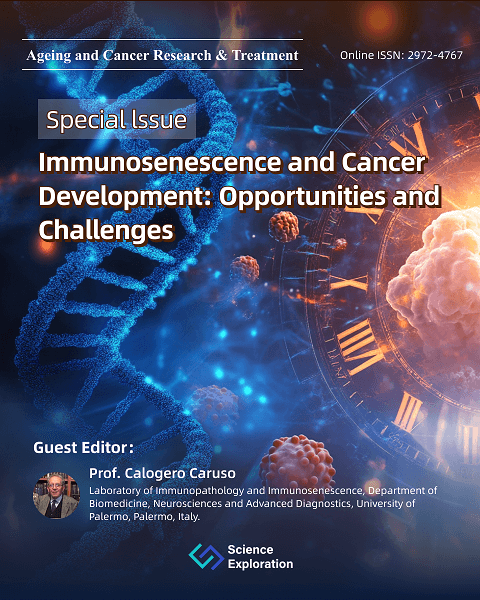Guest Editor(s)
Special Issue Information
Cancer immunosurveillance is the process by which the immune system eliminates newly formed malignant cells due to their presentation of neoantigens, making it one of the most critical factors in determining cancer outcomes. This concept laid the foundation for the later revolution in cancer treatment through the development of immunotherapy. The principle of immunosurveillance is supported by the observation that individuals with compromised immune systems have a higher incidence of cancer. Conversely, a strong antitumor immune response, such as the infiltration of solid tumors by cytotoxic T lymphocytes, is associated with a favorable prognosis, often carrying greater prognostic value than traditional histological and anatomical scoring systems. Despite immunosurveillance, cancer still develops in immunocompetent individuals. This apparent paradox is explained by the cancer immunoediting theory, which consists of three phases: elimination, equilibrium, and escape. In the elimination phase, the immune system efficiently detects and eradicates transformed cells. During equilibrium, the immune system selectively pressures cancer cells, favoring variants with increasing resistance to immune attack. Eventually, in the escape phase, immune-resistant tumor cells expand uncontrollably within an immunocompetent host. The transition from equilibrium to escape typically occurs when tumors acquire immune evasion mechanisms through genetic mutations or epigenetic modifications. However, in older individuals, this process is further driven by immunosenescence, a highly dynamic and multifactorial phenomenon involving shifts in immune function, some declining significantly, while others remain stable or even increase, varying among individuals. Age-related changes have been documented in both the innate and adaptive immune systems, contributing to increased infection rates, more severe infectious diseases, and diminished vaccine responses in older adults. A key hallmark of immunosenescence is the decline in naïve T and B cells, which impairs the immune system ability to recognize and respond to novel antigens, including cancer neoantigens. As a result, immunosenescence not only increases cancer incidence in old age but also weakens responses to immunotherapy. Additionally, inflamm-aging, the chronic, low-grade inflammatory state characteristic of aging, further promotes cancer by enhancing DNA damage, supporting angiogenesis, and suppressing antitumor immunity. Conversely, maintaining a well-regulated immune system and controlling inflamm-aging may help explain the lower cancer incidence and reduced cancer-related mortality observed in centenarians, who tend to be less immunosenescent and inflamed than "younger" old people. This Special Issue will explore the convergence of immunosenescence and inflammaging as key factors shaping the aging immune system permissive environment for cancer development. Immunosenescence weakens antitumor defenses, while inflammaging fosters oncogenic stimuli and a tumor-supportive microenvironment. Understanding the mechanisms underlying the increased incidence and aggressiveness of cancer in older individuals is essential for identifying novel therapeutic targets aimed at modulating immunity and/or inflammation.
Contact Us
Journal Editorial Office Email: acrtjournal@sciexplor.com
For Author Instructions, please refer to: www.sciexplor.com/acrt/author_instructions
For Online Submission, please login at: https://www.intellimanus.com/#/login?journalPath=acrt

